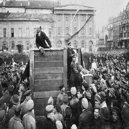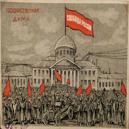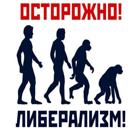Показано, что игнорирование истории, попытки ее извращения ведут к катастрофическим последствиям для государств и народов. На основе анализа истории мировых и региональных войн и конфликтов ХХ и начала ХХI в., обосновано, что США побеждают, как правило, действуя в союзе с Россией/СССР, и не добиваются успеха, действуя вне этого союза. Автор полагает необходимым позабыть и простить друг другу все накопившиеся взаимные обиды и претензии, как реальные, так и мнимые, — и стать честными партнерами без камня за пазухой: тогда ни России, ни США были бы не страшны никакие вызовы и угрозы.
Alarms of the modern world. Reflections of the russian american
It is shown that ignoring of history, attempts of her perversion conduct to catastrophic consequences for the states and the people. On the basis of the analysis of history of world and regional wars and the conflicts of XX and the beginning of the XXIst centuries, it is proved that the USA wins, as a rule, against working in the union with the Russia/the USSR, and don’t try to obtain success, working out of this union. The author believes necessary to forget and forgive each other all collected mutual offenses and claims, both real, and imaginary, and to become honest partners without stone in the bosom: then neither Russia, nor the USA no calls and threats would be terrible.
 Ранний опыт государственного строительства большевиков и Конституция РСФСР 1918 года
Ранний опыт государственного строительства большевиков и Конституция РСФСР 1918 года
 7
7
 25536
|
Официальные извинения
25536
|
Официальные извинения
 972
972
 106435
|
Становление корпоративизма в современной России. Угрозы и возможности
106435
|
Становление корпоративизма в современной России. Угрозы и возможности
 239
239
 85329
85329










